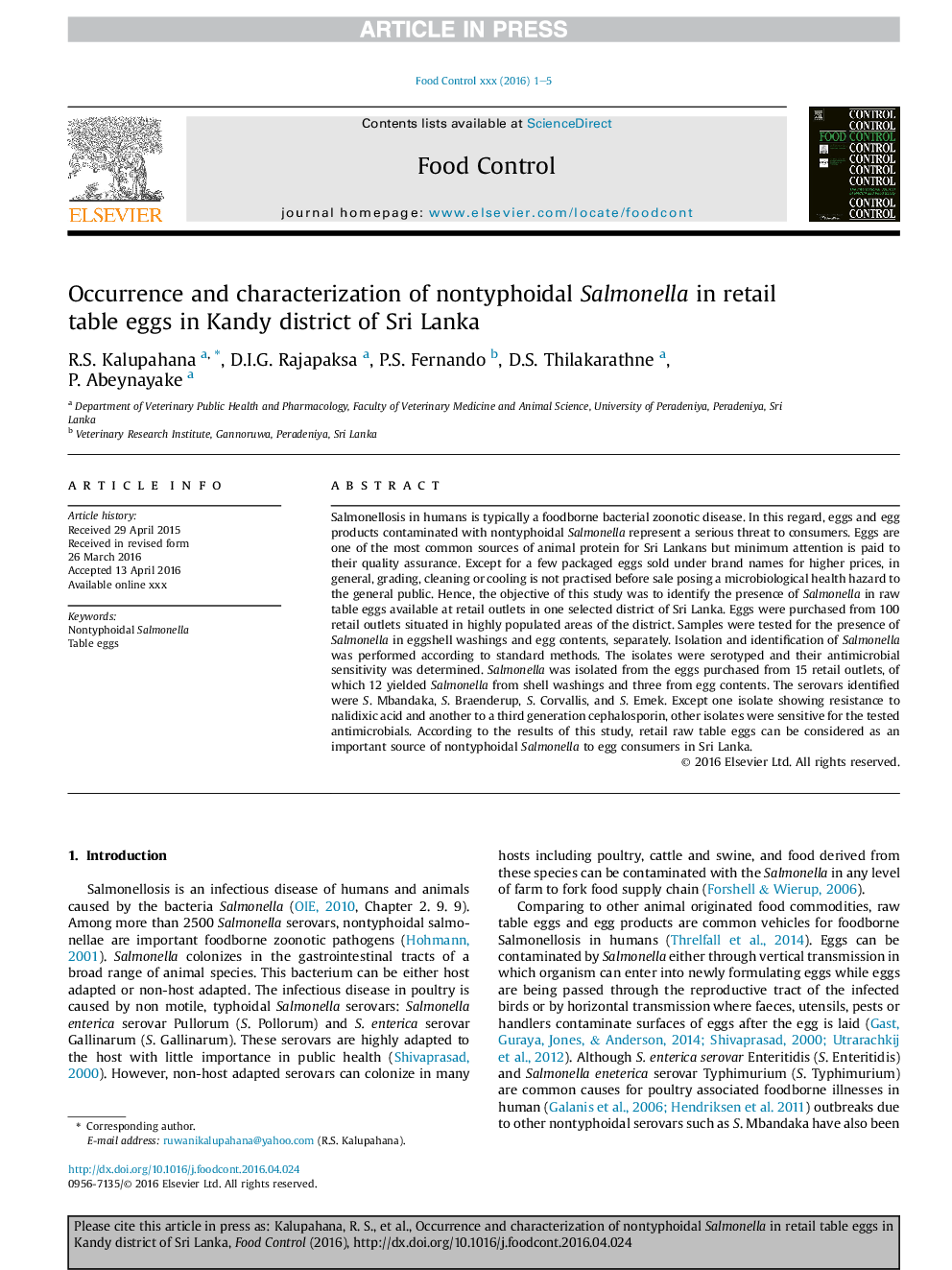| Article ID | Journal | Published Year | Pages | File Type |
|---|---|---|---|---|
| 5767361 | Food Control | 2017 | 5 Pages |
Abstract
Salmonellosis in humans is typically a foodborne bacterial zoonotic disease. In this regard, eggs and egg products contaminated with nontyphoidal Salmonella represent a serious threat to consumers. Eggs are one of the most common sources of animal protein for Sri Lankans but minimum attention is paid to their quality assurance. Except for a few packaged eggs sold under brand names for higher prices, in general, grading, cleaning or cooling is not practised before sale posing a microbiological health hazard to the general public. Hence, the objective of this study was to identify the presence of Salmonella in raw table eggs available at retail outlets in one selected district of Sri Lanka. Eggs were purchased from 100 retail outlets situated in highly populated areas of the district. Samples were tested for the presence of Salmonella in eggshell washings and egg contents, separately. Isolation and identification of Salmonella was performed according to standard methods. The isolates were serotyped and their antimicrobial sensitivity was determined. Salmonella was isolated from the eggs purchased from 15 retail outlets, of which 12 yielded Salmonella from shell washings and three from egg contents. The serovars identified were S. Mbandaka, S. Braenderup, S. Corvallis, and S. Emek. Except one isolate showing resistance to nalidixic acid and another to a third generation cephalosporin, other isolates were sensitive for the tested antimicrobials. According to the results of this study, retail raw table eggs can be considered as an important source of nontyphoidal Salmonella to egg consumers in Sri Lanka.
Keywords
Related Topics
Life Sciences
Agricultural and Biological Sciences
Food Science
Authors
R.S. Kalupahana, D.I.G. Rajapaksa, P.S. Fernando, D.S. Thilakarathne, P. Abeynayake,
